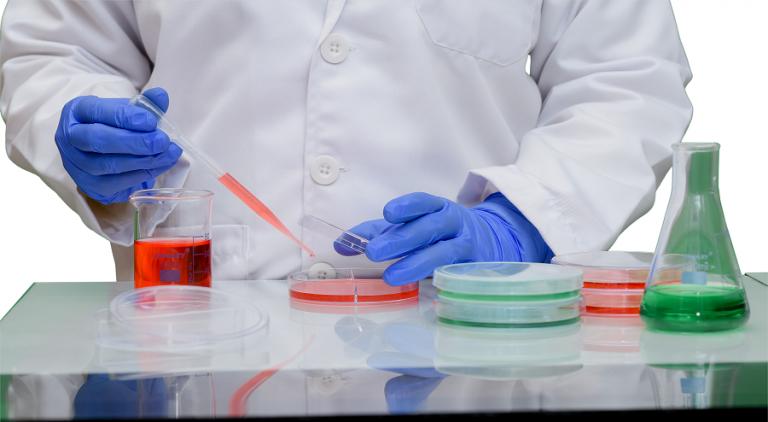Whenever we talk about biotechnology, the buzzwords are quality, precision, expertise, and innovations. Many laboratories of international standards are coming up in India and most of them will use quality chemicals, enzymes, reagents, and other consumables without which quality research is not only difficult but also impossible.
It is little surprise that most of the time plastic disposables, which are an important component of the whole research process, are given neither due consideration nor proper recognition by researchers. We might use the most expensive chemicals and reagents, but the desired efficiency and required precision can never be obtained if the plastic disposables used along with this do not match the same quality standards. It is more or less similar to drinking mineral water in unhygienic glass. As all consumables used in biotechnology are coming in direct contact with plastics, it is important that we study our plastic disposables minutely and efficiently. Otherwise, quality research will be impossible.
The plastic disposables I am referring to are products like micro tips, microcentrifuge tubes, PCR tubes, a range of high throughput screening products and high-tech products like filter barrier tips and spin columns. The concept of using quality laboratory plastic disposables is gaining popularity among the scientific community now. This is mainly due to the easy availability of these products in the Indian market. Till a few years ago, getting these quality products here was a nightmarish experience. Accessing these products has become easier and more affordable today. Having a long association with quality plastic laboratory disposables, I thought I must share some of my experiences with our elite scientific fraternity and assist them to access quality products to suit their requirements and save their precious time spent scanning the innumerable options available today.
Here’s a checklist to refer to while selecting plastic disposables.
- See if the products are RNase, DNase and pyrogen free which is a necessity in biotechnology research.
- Find out the type of material a disposable has been made up of- whether it has come from 99.9% pure, virgin poly propylene or not.
- Check whether the clarity of the tip is absolute or not because it plays an important part in your day-to-day experiments.
- All plastic disposables, which are made without any fillers, lubricants, dyes, or heavy metals, will always be more advisable than the ones where these important aspects have been ignored. Because if there are no additives chances of sample leaching are minimal.
- Should always look for special features that can give better precision during work, like having some engraved rings from inside at the top portion of the tip where the pipette shaft gets fixed up. Because this leads to the creation of a vacuum and ensures that all dispensing is controlled by the thumb and no sideway displacements are possible.
- A few tips are available with an exclusive feature of extended bevelled which means that it has a special cutting in front of the tip that reduces the surface area of the tip orifice. This eliminates the capillary action and the last drop problem.
- The mould in the plastic industry has the same significance as a soul in a living body and it is important that scientists should know what type of moulds have been used because the best moulds are the diamond polished ones which give absolute clarity and the finest finish.
- Similarly, in PCR products and Micro Centrifuge Tubes (MCT), rigorous quality control and quality assurance tests are required. Good MCTs will ensure that a researcher’s valuable samples will not be destroyed due to the popping up of MCTs even at 15,000-20,000 revolutions per minute and they will not leak even with the toughest solvents like phenol. Some companies are promoting such products with some special seals like a high-pressure double-ring seal to doubly ensure the safety of the samples. Scientists should insist on knowing what type of testing procedures the vendors follow.
A recent report in the US revealed that due to the adherence of liquid samples to the walls of plastic pipette tips, MCTs and PCR tubes, a significant amount of DNA, protein, enzymes or other samples may be lost. Also, DNA fragments tend to denature when binding to the polypropylene walls. Additional DNA tends to denature upon dehydration. Such problems could be significantly reduced if the selection of disposables is right. The study also showed that tubes manufactured by different companies behave differently as far as adherence and denaturation are concerned.
The new-age polymers used in the manufacture of these disposables eliminate many of the disadvantages of conventional polypropylene equivalents. Unlike standard polypropylene products, the walls and surfaces of products manufactured from these new ultra-modified plastics are completely free from any occlusions or cavities. This virtually eliminates fluid retention during sample aspiration and dispensing. These specialized products also ensure and give researchers unparalleled confidence that the maximum volumes of enzymes or DNA could be transformed during the testing procedures and results obtained could be more reliable and dependable.
By - Navneet Trehan (CEO, Genaxy Scientific Pvt. Ltd.)


